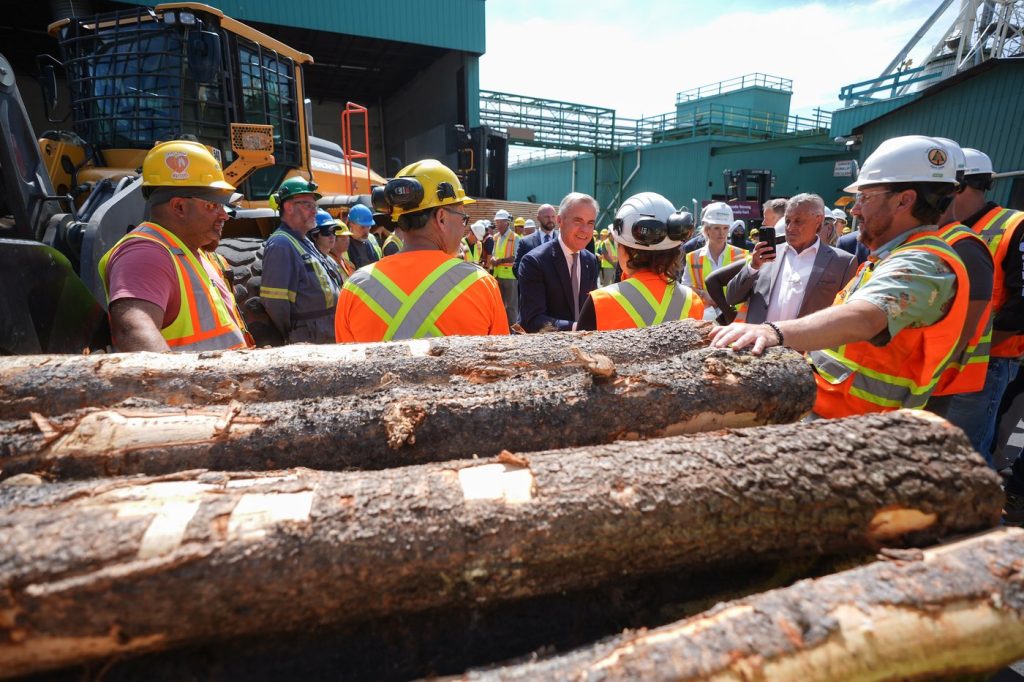Canadian Prime Minister Mark Carney's government is taking decisive action to support the forestry sector in response to rising duties imposed by the United States on Canadian softwood lumber. During a visit to a lumber mill in West Kelowna, British Columbia, on August 5, 2025, Carney announced a comprehensive aid package designed to mitigate the impact of these tariffs and bolster the industry.
The announced support includes $700 million in loan guarantees aimed at providing immediate fiscal relief to forestry companies facing the challenges of increased U.S. tariffs. In addition, Carney revealed plans for an investment of $500 million directed towards long-term supports that will assist companies in diversifying their export markets and enhancing product development. This strategic move is intended to empower Canadian businesses and ensure their competitiveness in the global lumber market.
Emphasizing the need for a robust domestic market, Carney stated that Canada will rely on its own timber resources as part of a broader initiative to significantly increase the country's housing supply. The Prime Minister outlined a goal of doubling the rate of new home construction to nearly 500,000 homes annually over the next decade. This ambitious plan demonstrates the government's commitment to addressing housing affordability while simultaneously supporting the domestic lumber industry.
To further bolster these efforts, the government will introduce a "build-Canada homes program" in the fall of 2025. This program aims to revitalize the construction of affordable homes using Canadian technology, labor, and lumber. By prioritizing Canadian materials and workers, the initiative seeks to foster local economic growth and enhance sustainability within the construction sector.
In addition to financial support and housing initiatives, Carney also announced a training program targeting the forestry workforce. This program, which includes an allocation of $50 million specifically for up-skilling and re-skilling workers in the sector, highlights the government's commitment to developing human resources and ensures that employees are equipped with the necessary skills to adapt to an evolving market landscape.
Carney's visit to the Gorman Brothers Lumber sawmill was marked by direct interactions with employees, emphasizing the importance of community engagement and support for the hardworking individuals in the forestry sector. His administration's comprehensive approach combines immediate financial assistance with long-term strategies aimed at reinforcing the foundations of the industry while promoting economic growth in British Columbia and across Canada.
With these proactive measures, the Canadian government aims to mitigate the effects of external pressures, such as U.S. trade tariffs, while enhancing the competitiveness and sustainability of its lumber industry. The multifaceted support framework laid out by Carney signifies a commitment to addressing both the immediate challenges faced by the sector and the broader need for housing in the country.
This bold initiative reflects the interconnection between trade policy, economic development, and community welfare, demonstrating how government action can support an essential industry while enhancing housing availability for Canadian citizens.










